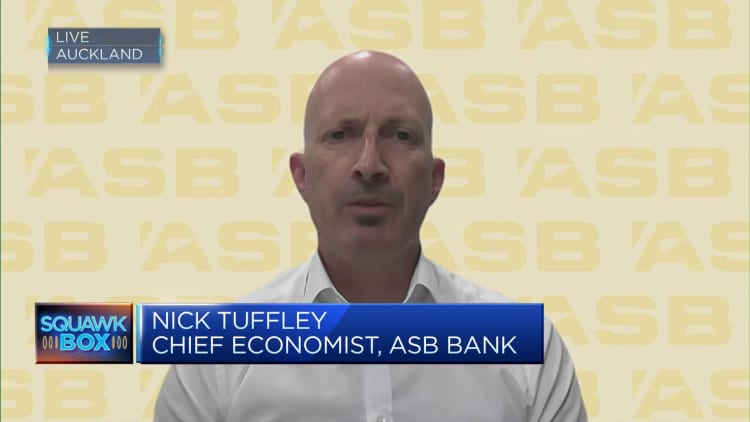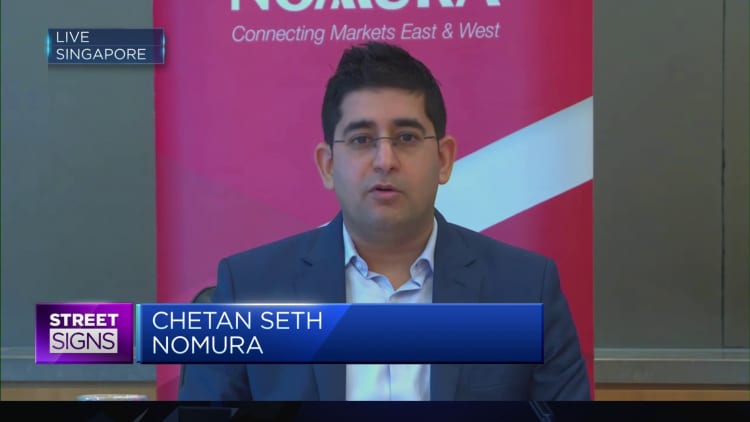Asia-Pacific markets were mixed on Wednesday as Wall Street digested a key U.S. labor report that showed job openings dropped to their lowest level in nearly two years in February.
New Zealand's central bank raised its benchmark cash rate by 50 basis points to 5.25%, with the New Zealand dollar strengthening by nearly 0.9% following the decision. Stocks in Wellington erased earlier gains and the S&P/NZX 50 traded 0.27% lower to end at 11,866.83.
Japan's Nikkei 225 led losses in the region, closing 1.68% down at 27,813.26, while the Topix lost 1.92% to end at 1,983.84, even as the economy saw its services sector expanding for the seventh straight month.
South Korea's Kospi gained 0.59% to end at 2,495.21, while the Kosdaq index also gained 1.77% to close at 872.36. In Australia, the S&P/ASX 200 climbed marginally to 7,237.2.
Singapore's Straits Times Index was 0.12% higher as investors further digested its retail sales for February, which came in 12.7% higher year-on-year.
Mainland Chinese and Hong Kong markets are closed for a holiday.
Overnight in the U.S., all three major indexes fell, with both the Dow Jones Industrial Average and S&P 500 snapping a four day winning streak. The Dow dropped 0.59%, while the S&P and Nasdaq Composite declined by 0.58% and 0.52% respectively.
— CNBC's Brian Evans and Tanaya Macheel contributed to this report




